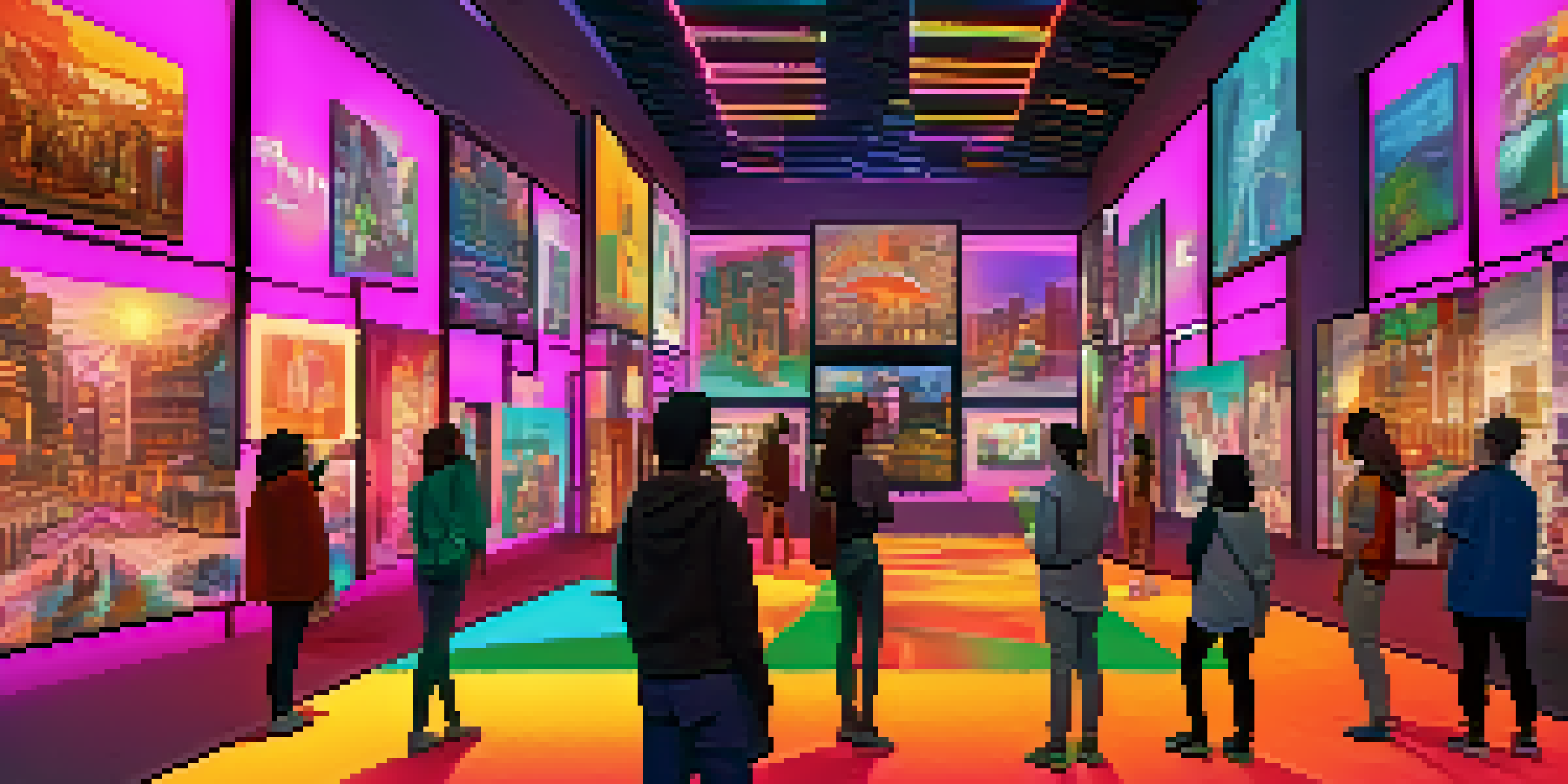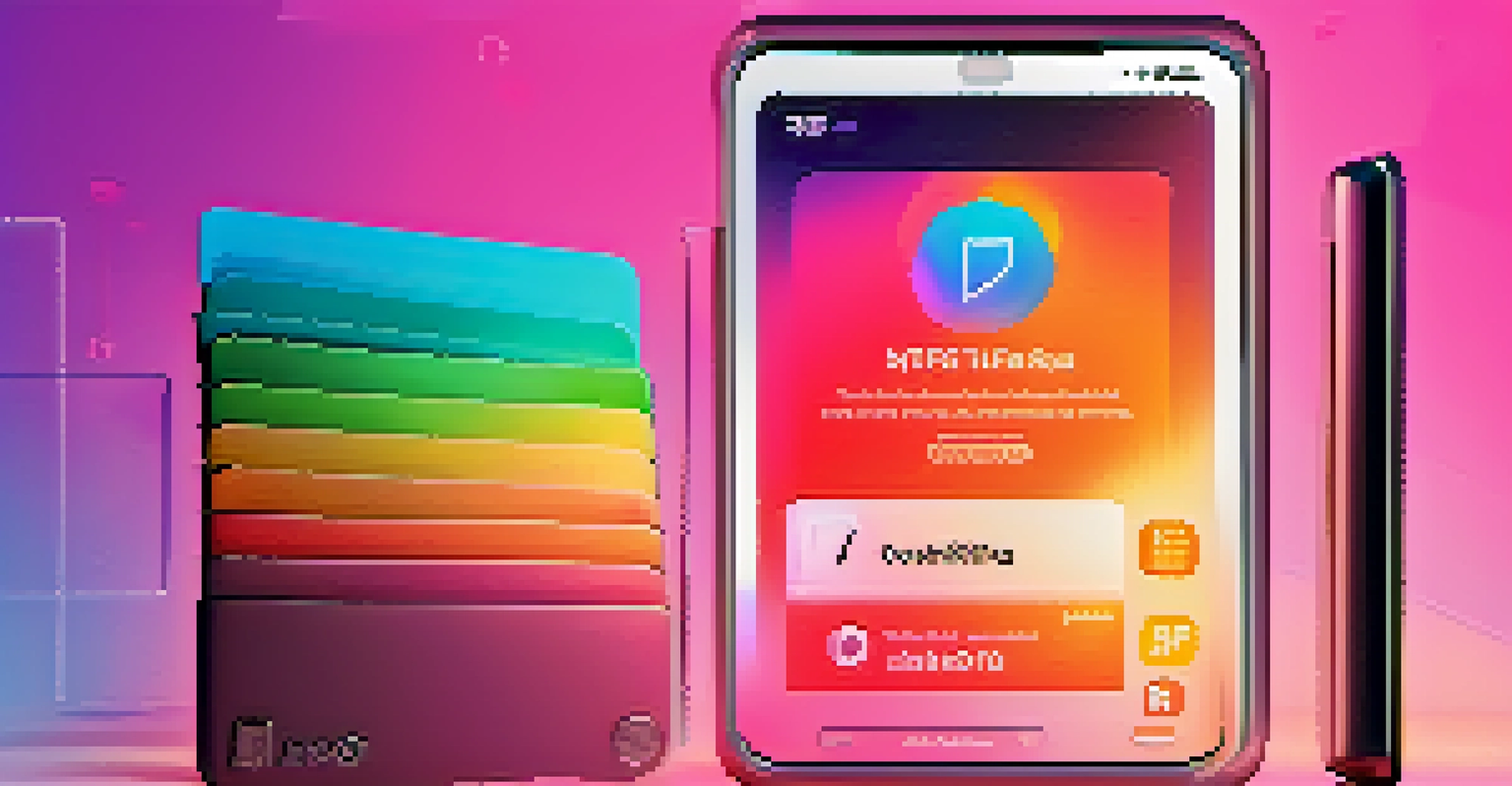NFTs and the Future of Digital Identity: Ownership and Control

Understanding NFTs and Their Role in Digital Identity
NFTs, or non-fungible tokens, are unique digital assets verified using blockchain technology. Unlike cryptocurrencies like Bitcoin, which are interchangeable, NFTs represent ownership of a specific item or piece of content, making them one-of-a-kind. This unique nature gives NFTs the potential to redefine how we perceive and manage digital identities.
In the digital age, owning your identity is not just a privilege; it's a necessity.
Imagine a world where your online persona is represented by digital assets that you genuinely own. With NFTs, your profile pictures, social media posts, or even your virtual real estate can be secured through ownership, allowing for more control over your digital presence. This shift can empower users, giving them the ability to curate and protect their identities in a way that hasn’t been possible before.
As more individuals and brands adopt NFTs, understanding their implications on digital identity becomes crucial. This is not just about owning digital art; it’s about establishing a verifiable identity that can enhance personal branding and online engagement.
The Shift from Centralized to Decentralized Control
Traditionally, online platforms have controlled user identities, often leading to privacy concerns and data misuse. Centralized systems store vast amounts of personal information, which can be vulnerable to breaches. NFTs offer a decentralized alternative that allows users to retain control over their own data, creating a safer and more transparent digital environment.

With NFTs, users can authenticate their identities without relying on third-party platforms. This means you could own a digital badge or certificate that proves your achievements or qualifications without having to share personal information with various companies. It’s like having a digital passport that doesn’t reveal more than necessary.
NFTs Redefine Digital Identity
NFTs enable users to own and control unique digital assets, enhancing personal branding and online engagement.
This decentralization promotes a sense of ownership and trust in the digital space. As users take charge of their identities, they can engage with brands and communities on their terms, enhancing the overall online experience.
NFTs as Digital Credentials: The Future of Verification
In the future, NFTs could serve as digital credentials, verifying skills and accomplishments seamlessly. Imagine applying for a job and having your qualifications represented as NFTs stored in your digital wallet. Employers could instantly verify your skills without the need for lengthy background checks.
The future of our digital identities depends on our ability to control and protect them.
This concept can transform how we approach education and professional development. Schools and universities could issue certificates as NFTs, ensuring their authenticity and preventing forgery. As a result, the emphasis on traditional degrees may shift towards demonstrating skills and practical experience through verifiable digital assets.
Moreover, this could lead to a more inclusive job market where skills take precedence over formal education. By leveraging NFTs, diverse talents can showcase their abilities and secure opportunities that align with their strengths.
Protecting Digital Ownership: The Importance of Smart Contracts
Smart contracts are self-executing contracts with the terms of the agreement directly written into code. They play a vital role in NFTs, ensuring that ownership and rights are automatically enforced without the need for intermediaries. This technology can help protect your digital assets and identity from unauthorized use.
For instance, if you create a piece of artwork as an NFT, a smart contract can dictate how it’s shared and how you are compensated for its use. This ensures that your rights as a creator are upheld, giving you control over your work in the digital realm.
Decentralization Empowers Users
With NFTs, individuals can authenticate their identities independently, fostering trust and ownership in the digital space.
As digital ownership becomes more complex, understanding the utility of smart contracts will be essential. They provide a framework for security and trust, enabling users to engage in transactions confidently.
Challenges Ahead: Navigating the NFT Landscape
While NFTs hold immense potential for transforming digital identity, there are challenges to navigate. Issues like environmental concerns related to blockchain technology and the volatility of NFT markets can create barriers to widespread adoption. It’s essential to address these challenges to ensure sustainable growth in this space.
Moreover, as NFTs gain popularity, the risk of scams and fraud increases. Users must remain vigilant and informed to protect their assets and identities. Educating users about how to spot potential risks and ensuring transparency in transactions can help mitigate these concerns.
Overcoming these hurdles will require collaboration among stakeholders, including artists, developers, and regulatory bodies. Together, they can create a more secure and equitable NFT ecosystem that benefits everyone.
The Role of Community in Shaping Digital Identity
Communities play a crucial role in how digital identities are formed and perceived. In the NFT space, communities often rally around shared interests, creating a sense of belonging and support. This collective engagement can enhance personal brands and help individuals leverage their digital identities effectively.
Participating in communities allows individuals to connect with others who share similar values and interests. Whether it’s through virtual galleries, forums, or social media, these interactions can shape how identities are viewed and validated in the digital landscape.
NFTs Transform Credential Verification
Future applications of NFTs as digital credentials could streamline verification of skills and achievements, making education and job markets more inclusive.
As NFTs continue to evolve, fostering positive and inclusive communities will be essential. They can provide a space for collaboration and creativity, helping to build a more robust digital ecosystem where everyone has a voice.
Looking Ahead: The Future of NFTs and Digital Identity
As we look to the future, the intersection of NFTs and digital identity promises to revolutionize how we perceive ownership and control online. With advancements in technology and growing acceptance, NFTs could become integral to our digital lives, shaping everything from personal branding to community engagement.
The potential applications are vast, ranging from virtual reality experiences to personalized online interactions. As these innovations unfold, they’ll open up new avenues for individuals to express themselves and establish their digital identities.

Ultimately, the future of NFTs and digital identity is about empowerment and agency. As users gain more control over their online presence, they can navigate the digital landscape with confidence, authenticity, and creativity.